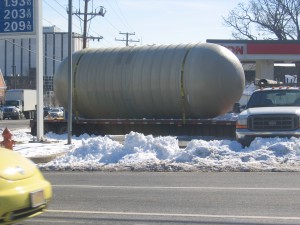 Since January 1993, DANA Insurance & Risk Management has been one of the nation’s leaders in providing tank insurance to petroleum marketers, gas stations, c-stores, marinas and dozens of other non-marketer businesses. We were formed because the EPA required that businesses comply with financial responsibility (FR) regulations. For most, that simply meant tank insurance. And Maryland, where we are based, did not have a State Fund. So we began with tank number one. We now have over 9,000 tank systems insured in seventeen states.
Since January 1993, DANA Insurance & Risk Management has been one of the nation’s leaders in providing tank insurance to petroleum marketers, gas stations, c-stores, marinas and dozens of other non-marketer businesses. We were formed because the EPA required that businesses comply with financial responsibility (FR) regulations. For most, that simply meant tank insurance. And Maryland, where we are based, did not have a State Fund. So we began with tank number one. We now have over 9,000 tank systems insured in seventeen states.
These days, we are a hybrid retail-wholesale agency. 50% of the time, we work directly with our clients. The other 50%, we’re working with the commercial insurance broker. In both cases, our clients and our brokers want the same thing: arrange for the most appropriate form of storage tank liability, site liability or whatever other environmental coverage is available, working with the top ten environmental insurance companies to get it. We leverage our volume, and more importantly our experience, to help everyone achieve their objectives.
Financial Responsibility
 EPA Financial Responsibility regulations require that businesses owning and/or operating regulated USTs be able to demonstrate their ability to pay for damage caused when their tank system leaks. Payment generally includes both the costs for cleaning up a site and for compensating others for their bodily injury and property damage.
EPA Financial Responsibility regulations require that businesses owning and/or operating regulated USTs be able to demonstrate their ability to pay for damage caused when their tank system leaks. Payment generally includes both the costs for cleaning up a site and for compensating others for their bodily injury and property damage.
Dependent upon your corporate net worth, there are several methods for meeting Financial Responsibility: Qualified Self Insurance, Corporate Guarantee, Insurance (FR), Surety Bond, Letter of Credit, Trust Fund, State Fund or a combination of these methods.
Insurance and State Funds are the most common methods used throughout the country. Both are based on principles of a Claims Made insurance policy requiring proof that the release came from a covered storage tank system and after a pre-determined effective (retroactive) date.
Insurance policies include costs for Legal Defense Expenses to defend you in the event of a third party liability claim. They are structured as “pay on behalf of” programs that can pay your expenses up front and then collect the deductible from you at a later date. Other policy benefits are sometimes included such as Loading and Unloading coverage.
State Funds often do not include Defense Expenses. Clean up can be based on a reimbursement schedule. In other words, you would be responsible for your defense expenses and pay up front for your clean up costs, then wait for the State to reimburse you for the covered clean up expenses. The delay between your payment to the clean up contractor and receipt of reimbursement from the State Fund can have a severe impact on your businesses cash flow. Some State Funds may require a combination of methods shown above to meet their deductible/self insurance requirements. For state fund tanks in North Carolina, Ohio, South Carolina and Virginia, we have a simple and inexpensive program to meet their special “deductible” conditions.
This link describes the steps that a UST owner/operator needs to take to help protect their business and our environment. Click more information… http://www.epa.gov/swerust1/pubs/ustfacts.htm
